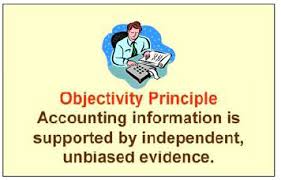In this article of accounting theory we will discuss about meaning of accounting, its objectives, advantages, limitations, bases and branches.
Accounting is the process of systematically recording, summarizing, analyzing, and communicating financial information about a business entity. It involves keeping track of financial transactions, preparing financial statements, and providing insights for decision-making.
Following are other important points of accounting theory for beginners.

Accounting Theory : Objectives of Accounting:
- Recording Financial Transactions: The main goal of accounting is to record all monetary transactions of a business in a structured and accurate manner.
- Communicating Financial Information: Accounting aims to provide reliable financial information to stakeholders, such as investors, creditors, and management. This information helps in decision-making, assessing the financial position, and evaluating business performance.
- Facilitating Decision-making: Accounting assists managers in making informed decisions by providing financial data and analysis. It helps with budgeting, forecasting, and identifying areas of improvement or potential risks.
- Ensuring Legal Compliance: Accounting ensures compliance with legal and regulatory requirements, such as tax laws, company laws, and accounting standards. It helps in preparing financial statements that adhere to prescribed guidelines.
- Assessing Financial Performance: Accounting helps in evaluating the financial performance of a business by analyzing financial statements, such as the income statement, balance sheet, and cash flow statement. It enables the assessment of profitability, liquidity, solvency, and efficiency of the organization.
Advantages of Accounting:
- Financial Monitoring: Accounting provides a systematic way to monitor and track financial transactions. It helps businesses keep a record of their income, expenses, assets, and liabilities, ensuring accurate financial management.
- Decision-making Support: Accounting information assists in making sound business decisions. It provides insights into the financial health of the organization, enabling managers to evaluate project feasibility, determine profitability, and allocate resources effectively.
- Performance Evaluation: Accounting facilitates the evaluation of a business’s financial performance. It helps assess profitability, identify areas of improvement, and measure operational efficiency.
- Tax Compliance: Proper accounting practices ensure compliance with tax regulations. By maintaining accurate records of income, expenses, and assets, businesses can calculate their taxable income and fulfill their tax obligations.
- Stakeholder Communication: Accounting enables effective communication with stakeholders. It provides financial statements and reports that convey the financial position, performance, and prospects of the business to investors, creditors, and other interested parties.
Limitations of Accounting:
- Subjectivity: Accounting involves judgment and estimation, which can introduce subjectivity and bias into financial reporting. Different accounting policies and interpretations may lead to varying results.
- Historical Focus: Accounting primarily deals with past financial transactions and events. It may not accurately reflect the current or future value of assets and liabilities. The emphasis on historical data limits its usefulness for making forward-looking decisions.
- Non-financial Factors: Accounting focuses on quantifiable financial information and may not capture qualitative or non-financial factors that can influence business performance, such as customer satisfaction, employee morale, or brand reputation.
- Costly and Time-consuming: Maintaining proper accounting records and preparing financial statements can be time-consuming and require financial expertise. Small businesses with limited resources may find it challenging to implement and afford comprehensive accounting systems.
- Limited Scope: Accounting captures only measurable financial transactions and events. It may not reflect the full value of intangible assets like intellectual property, brand value, or human capital, which can significantly impact the organization’s success.
Some of other important accounting theory topics include basis and branches of accounting.
Basis of Accounting:
- Cash Basis: In cash basis accounting, transactions are recorded when cash is received or paid. It focuses on the actual flow of cash and doesn’t consider credit transactions. It is straightforward but may not provide an accurate view of the financial position or performance.
- Accrual Basis: The accrual basis of accounting recognizes transactions when they occur, irrespective of cash flow. It records revenues when earned and expenses when incurred, giving a more comprehensive understanding of financial activities. It aligns with the matching principle and is widely used in businesses.
Branches of Accounting:
- Financial Accounting: Financial accounting focuses on recording, summarizing, and reporting financial information to external stakeholders like investors, creditors, and regulatory authorities. It involves preparing financial statements, such as the income statement, balance sheet, and cash flow statement, to provide an overview of a company’s financial performance and position.
- Management Accounting: Management accounting is concerned with providing financial information to internal stakeholders, primarily management, for decision-making and planning. It involves preparing budgets, forecasts, and performance reports that aid managers in analyzing costs, profitability, and efficiency, enabling effective decision-making.
- Cost Accounting: Cost accounting involves analyzing and tracking costs incurred in the production process of goods or services. It helps determine the cost of production, assess cost efficiency, and make informed pricing decisions. Cost accounting also includes budgeting, variance analysis, and cost control measures.
- Tax Accounting: Tax accounting focuses on ensuring compliance with tax laws and regulations. It involves calculating taxable income, preparing tax returns, and maintaining records to meet tax obligations. Tax accountants stay updated with tax laws and help businesses optimize their tax strategies while adhering to legal requirements.
- Auditing: Auditing involves the independent examination and verification of financial records and statements to ensure accuracy and compliance. Auditors assess internal controls, financial statements, and accounting practices to provide an objective opinion on the fairness and reliability of the information presented.
- Forensic Accounting: Forensic accounting combines accounting, auditing, and investigative skills to detect and prevent fraud, financial irregularities, and disputes. Forensic accountants analyze financial data, reconstruct transactions, and provide expert opinions for legal proceedings, such as litigation, insurance claims, or financial investigations.
- Social and Environmental Accounting: Social and environmental accounting focuses on measuring and reporting the social and environmental impact of business activities. It assesses factors like sustainability, corporate social responsibility, and the ecological footprint of organizations, considering both financial and non-financial aspects.
These branches of accounting cater to different aspects of financial management and reporting, serving the diverse needs of businesses and stakeholders.


